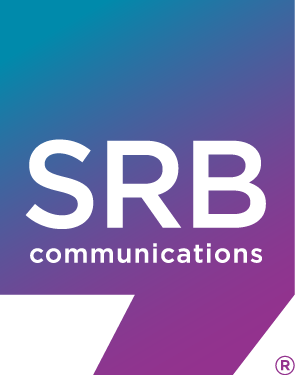News & Insights
Minorities’ Trusted Leaders Are Valuable Allies in Public Health Crises
Faith may move mountains, but trust moves people to action in a crisis. Trusted friends, family members and influential leaders in our personal circles guide us through life’s difficulties when we’re worried, overwhelmed, misinformed, uninformed or complacent.
The Black community’s proactive efforts to protect its members during the pandemic teach a lesson about the influence of trusted relationships. It’s an example this country’s public health leaders should take into consideration before the next emergency. In a nutshell, the lesson is this: Many Black Americans distrust government, government leaders and big media companies. However, they trust their leaders, especially faith-based leaders.
This a bedrock conviction for me, as a Black woman who founded and leads SRB Communications, a boutique advertising, marketing and PR agency that specializes in multicultural communications and which is seeking more clients in the public health space.
At the pandemic’s outset especially, minorities by and large received Covid vaccinations at far lower rates than white people while enduring higher numbers of infections, hospitalizations and deaths. The health toll on the Black community was exacerbated by job losses, financial difficulties, loss of caregivers and elders, deficiencies in educational learning and food insecurity. More than a year into the pandemic, Black Americans’ Covid vaccination rates began rising markedly, reaching parity with whites’ rates, while their death rates declined. What caused the turnaround?
Part of the answer is public-private partnerships, community organizations and faith-based organizations together made testing and vaccination locations more accessible and provided more personal protective equipment and therapies. “Organizational trustworthiness served to build confidence across the communities served, which resulted in thousands more people of color making the decision to become vaccinated,” according to the Black Coalition Against Covid’s assessment report last year.
The Conference of National Black Churches (CNBC), which estimates a combined membership of more than 20 million people and 30,000 congregations, drove a huge communications effort to persuade church members to get vaccinated and provide them with opportunities to do so. With funding from the Center for Disease Control and Prevention’s Partnering for Vaccine Equity program (P4VE), the CNBC reported it:
• Hosted more than 1,200 vaccination sites at churches nationwide
• Distributed more than 650,000 vaccinations
• Trained more than 4,300 pastors and faith leaders to be vaccine advocates and influencers
• Produced more than 3,000 public service announcements and social media posts
• Hosted webinars and town halls focused on sharing education, correcting misinformation, and debunking myths about vaccines
CNBC churches learned some important lessons about this work. One was that holding Covid-related events after services or in conjunction with church social activities boosted attendance and helped overcome reluctance and distrust. Another was that offering vaccinations in evenings and on weekends helped families with busy work schedules.
Researchers have produced some small studies from the pandemic with similar findings. One, published online in February by the journal Vaccine, explored the trust and influence of community-based organizations (CBOs) in the Philadelphia area and how those assets might shape public health strategies to promote vaccinations and other health messages.
CBOs may be faith-based organizations such as churches but could also be YMCAs or social groups. Whatever their function, CBOs are trusted in their communities and “trust is central to influencing and delivering health messaging,” the researchers said. “CBOs can serve as a critical link between communities and public health programs to deliver salient messages through an appropriate, well-placed medium that resonates through the community.”
One reason is that the people leading these organizations listen to community members. That helps create a rapport, a safe space to engage and to establish a relationship with the people they serve. Another is authenticity: people in minority communities want to see and talk with people who look like them and have lived where they live.
Those observations reinforce my own beliefs about multicultural communications, SRB’s specialty since I started this agency more than three decades ago. We think our expertise along with our proven skills in strategy and storytelling and community engagement can benefit clients in public health.
Understanding how CBOs develop and build influence in communities can help public health and medical providers create partnerships with them in a crisis, the researchers said. More importantly, health services might “also build their own authentic relationships with both CBOs and the residents of their local communities under non-emergency conditions.”
That’s a great suggestion. And now is an ideal time for our public health leaders to start creating those connections in America’s underserved communities.



